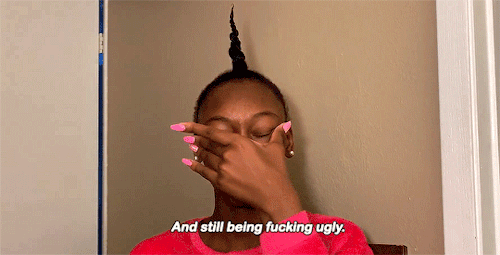Journalist vs. Influencer:
Which One Are You?
Journalist vs. Influencer:
Which One Are You?
Written by Soul Witness
🕒 October 16, 2019
Okay, let’s be real. All of our bosses, or the “digital team”, have asked us to have a presence on social media: Facebook, Instagram, Twitter, and sometimes even Snapchat.
They want us to share our work, and help promote the station we’re working for, but many journalists don’t tread lightly on that “journalist or influencer” line. This can be because they don’t know there is a line, and management hasn’t gone over it, or they want the social media fame for themselves.
Either way, you’ve got to pick a side. Let’s start by breaking down why.
An influencer and a journalist are two different things. However, there is a similarity. They both promote things… but very different things and for very different reasons.
Journalists promote their work, the station’s work, their co-workers’ work but that’s it. They don’t promote anyone else’s brand, or products they use or something they sell, and get commission or a percentage of the profit.
Think of an influencer as a salesperson.

They have agreements with brands, product companies, their friend’s companies. They get paid money, or get free products, to promote them and gas up the company.
It’s the old “scratch my back and I’ll scratch yours” adage. However, in the news world, that is called “payola” or “plugola.” This is an extreme violation of journalism ethics.
Here’s why: It makes that journalist or that news organization seem like they can be bought or bribed. It ruins trust with the viewers. That’s why it’s such a big deal to managers and corporate.
If you’ve done it accidentally, don’t feel guilty, we all have. It can start out innocent, and even be completely innocent, not set up by either party… but it’s something you’ve got to be aware of from now on.
Here’s an example of a post on social media: “Check out these awesome cookies the (tag/mention/name bakery) made for the crew at (insert news station.)” You’re just excited about the cookies, and they may be really cool…but even that post can be seen as plugola.
To further define it: That company gave you something in exchange for a shout out on social media or on air. Again, they may not have planned it, and you didn’t mean to, but I’ve seen some journalists get in trouble for something that innocent.
Your station should have an ethics and/or social media guidelines packet, or a training, that employees go through.
If they don’t cover things like this, make sure you ask and are very clear on what is and isn’t acceptable.
There are a few exceptions that could exist with your station. Maybe you have some segments where you review products or try new food. If your station supports that, you’re good.
Again, just make sure to go over the specifics of what is and isn’t allowed. Get it in writing so you can reference it, and (let’s continue to keep it real) if you get in trouble for something, you can say, “nope, it’s right here in writing that this is allowed.”
Now back to the influencer side of things. While it can look and feel super glamorous to be considered an influencer, they have to follow some regulations too.
It’s a lot of work (organizing, staging, taking photos, scheduling posts, writing and crafting the post itself, being responsive to comments, getting hatful messages and comments, etc.) and sometimes you even see posts from your favorite influencer about the pressures they deal with.
Oftentimes, the rewards aren’t the best.
It may look like they get tons of free stuff, but, the majority of the time, they have to pay for the products they are promoting, and only get a small percentage/commission from each post if they get anything at all.
While some companies may treat their influencers wonderfully, others don’t. Plus, you’ve got to weigh the incredible amount of influencers and influencer-hopefuls trying to “make it” out there. You think the journalism business is a tough and competitive one…
Just to wrap it up, an influencer is a cool job, but you can’t be an influencer and a journalist at the same time.
As a journalist, you DO have influence, but you do that through the people and communities you help by telling their stories, warning them of danger, and helping them find solutions to city or county-wide issues.
I’ve known some journalists who have made the switch to influencer and vice versa. Just weigh all of your options and do what’s best for you! Until then, keep that line drawn, and don’t cross it until you’re positive of the path you want to follow. Best of luck! 💜



Glad to see this article is with the times and says you can do both. When it comes down to it, journalists are tastemakers. Where should you go eat? Go see what the food critic is saying. Want to know what phone is best? Read what the tech journos are using. And so on. The important point is to be ethical and also, not be a douche about it.